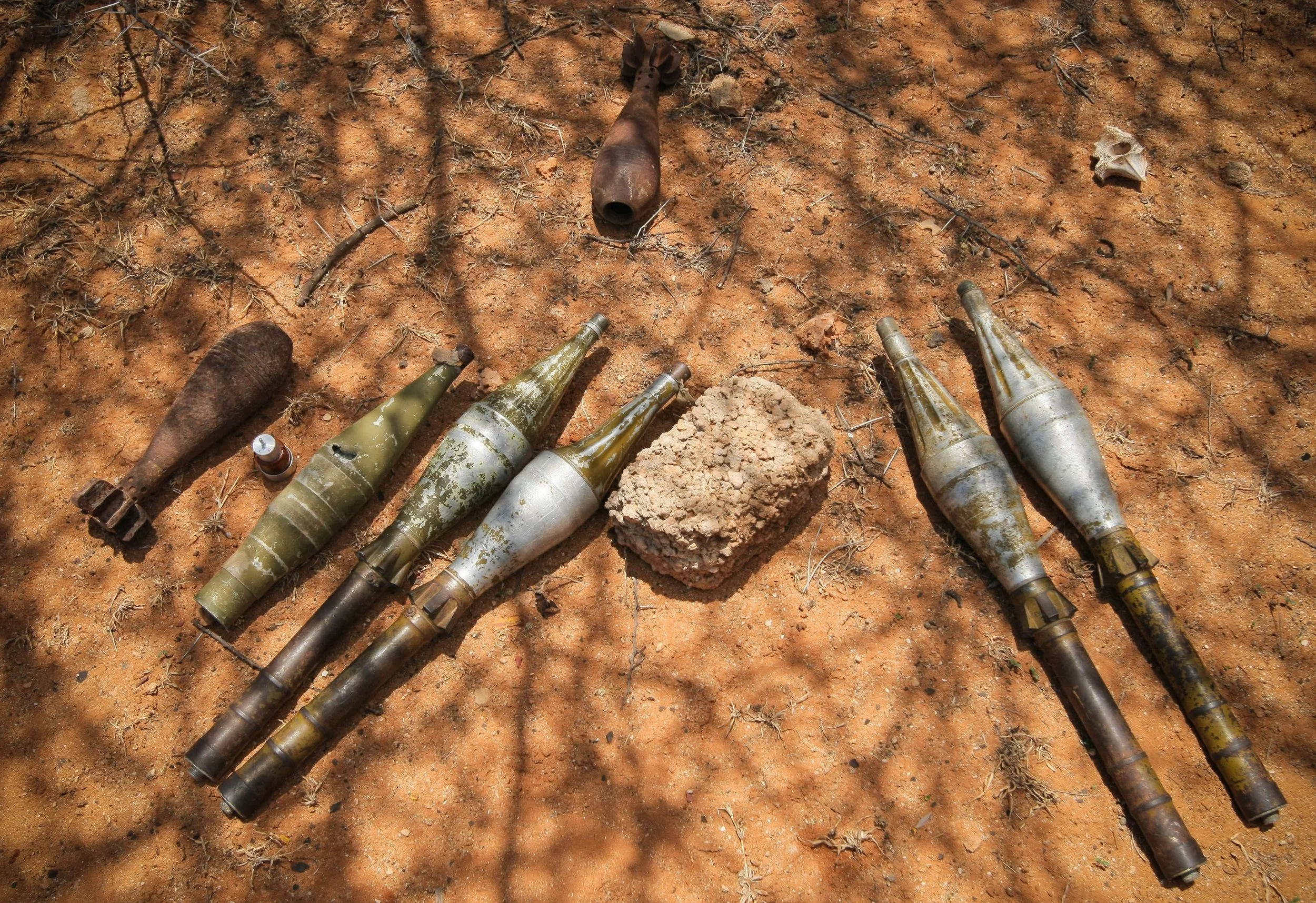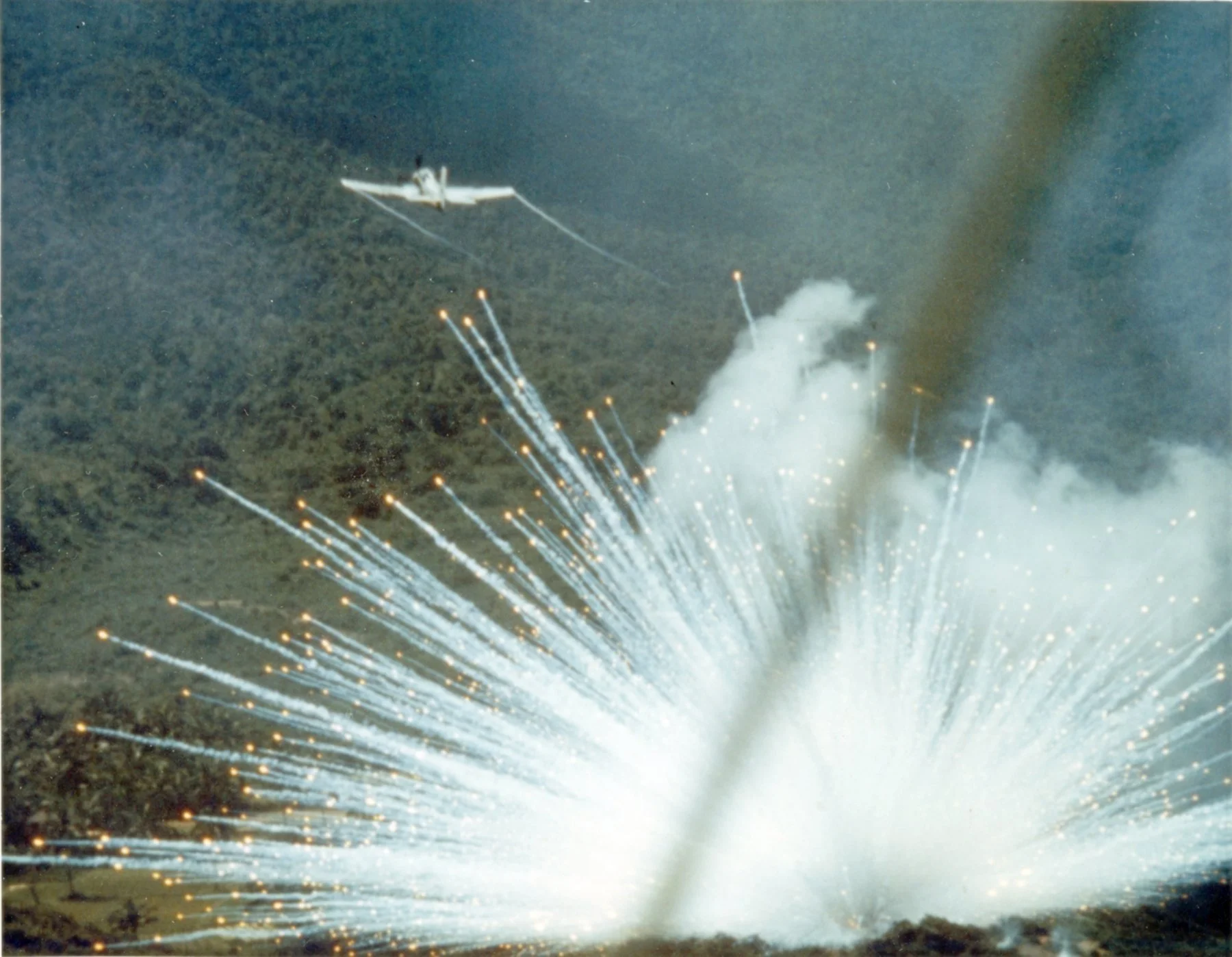Research
Research with operational relevance is a pillar of EXTRACCT’s activities. We focus on research questions with direct applications for humanitarian practitioners and concrete implications for injury prevention and trauma care in settings affected by explosive weapons.
Our research team is integrally linked with the IBRN and leverages expertise from disciplines including trauma care, epidemiology, computational modelling, implementation science, and security studies to address evidence gaps affecting civilian explosive weapon casualties.
Incendiary weapons
Incendiary weapons are widely regarded as some of the cruelest weapons in modern warfare. Incendiary weapons are delivered in a range of munitions including artillery shells, rockets, bombs and contain compounds such as napalm, white phosphorus, or thermite. In addition to the complex injury patterns inflicted from the associated blast mechanism, incendiary weapons also cause thermal and chemical burns that lead to disproportionate suffering among victims. EXTRACCT currently chairs the Incendiary Weapons Sub-Committee of the Emergency Risk Education Task Team through GICHD’s Explosive Ordnance Risk Education Advisory Group. In this role, EXTRACCT is conducting a scoping review on the impact of incendiary weapons in 21st century armed conflict to inform subsequent steps in epidemiologic studies for evidence-based advocacy and improvements in burn care in conflict-affected low-resource settings.
Sheltering guidance and injury prevention
Modern armed conflict is increasingly characterised by the use of explosive weapons in populated areas (EWIPA). At present, there is limited empiric evidence to support recommendations given to civilians sheltering during explosive events. The aim of this project is to understand current guidance being provided to civilians for physical positioning during explosive events as well as to elucidate current practices, implementation barriers, and evidence gaps through a scoping review and qualitative analysis of key informant interviews with sector experts.
Management of embedded ordnance
Even in open environments, the management of unexploded ordnance (UXO) is a complex, dangerous and resource-intensive endeavor. When UXO is embedded in the body of a patient these challenges are increased exponentially, posing risks to the patient and all medical personnel caring for them in complex operational environments. EXTRACCT is evaluating the current evidence base surrounding management of embedded UXO, including synthesis of existing guidelines and sector expert consensus to inform future multidisciplinary research.
Layperson first responder trainings
Layperson first responder (LFR) trainings have been conducted to task-shift lifesaving first aid to untrained bystanders in low-resource settings. The aim of this project is to establish best practice standards and implementation toolkits surrounding all phases of LFR trainings from community-engaged needs assessment to monitoring and evaluation. To develop these resources, we will conduct pilot joint delivery of explosive ordnance risk education (EORE) training and LFR trainings for communities affected by IEDs in Burkina Faso.




